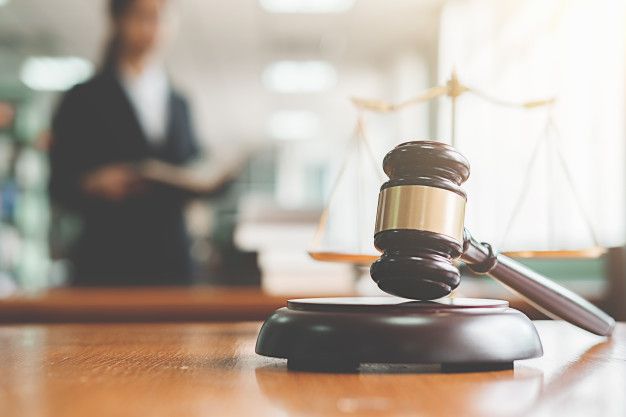Peculiarities of execution of a franchise agreement
Franchising is a popular form of doing business that allows entrepreneurs to use a ready-made business model, brand and support from a franchisor. Executing a franchise agreement is an important step, as this agreement regulates the rights and obligations of the parties. A legal analysis of the situation, a legal review of the documents by a lawyer, and a legal opinion from a lawyer will help ensure that the agreement is executed correctly and avoid legal risks in the future.
Legal analysis of the franchise agreement
Before signing a franchise agreement, it is necessary to conduct a detailed legal analysis of the documents. This will help to ensure that all the terms of the agreement comply with the requirements of the law and protect the interests of both parties. A lawyer will review the terms of the agreement and provide recommendations on possible risks.
- Legal review of documents: The lawyer will check the franchise agreement for compliance with the legal requirements and the presence of all necessary conditions.
- Legal analysis of documents: The lawyer will analyse the documents to identify possible legal risks or deficiencies that may affect the implementation of the agreement.
- Legal opinion of the lawyer: After the analysis, the lawyer will provide a legal opinion with recommendations for further actions and possible changes to the agreement.
Key elements of a franchise agreement
The franchise agreement must contain certain key elements that regulate the rights and obligations of the franchisor and the franchisee. A lawyer can help make sure that all important terms are included in the agreement and ensure that they are properly drafted.
- Subject matter of the agreement: The franchise agreement should clearly define what is being transferred to the franchisee, including the right to use the brand, business model and other assets.
- Royalties and payments: The agreement should contain information on royalties, initial payments and other financial obligations of the franchisee to the franchisor.
- Obligations of the parties: The franchise agreement should describe the responsibilities of both the franchisor and the franchisee, including support, training and marketing.
- Territory and duration: It is important to include terms and conditions regarding the territory in which the franchisee can conduct business, as well as the duration of the agreement and the possibility of its extension.
Legal aspects of the franchise agreement
A franchise agreement is governed by national law and international law. A lawyer will conduct a legal analysis of the terms of the agreement and help ensure that all legal requirements are met. It is important to correctly determine the legislation applicable to the agreement and the guarantees to protect the interests of both parties.
- Legal requirements: A lawyer will check whether the contract complies with the requirements of national law and determine which law will apply to disputes between the parties.
- International agreements: If the franchise agreement is of an international nature, it is important to take into account the requirements of international agreements and regulations governing trade and franchising.
- Protection of intellectual property: The agreement should contain provisions on the protection of the franchisor's intellectual property, including the brand and trade secrets.
Legal risks and liability in the franchise agreement
Franchising, like any other form of business, has certain legal risks. It is important to properly draft all the terms of the agreement to avoid possible disputes in the future. A lawyer can help minimise the risks and draft an agreement that protects the interests of both parties.
- Failure to comply with the terms of the contract: If one of the parties breaches the terms of the contract, legal disputes may arise, so it is important to set out mechanisms for resolving such conflicts.
- Financial risks: Failure to comply with payment or royalty terms may result in penalties or termination of the agreement.
- Liability of the parties: A lawyer will help to clearly define the liability of the franchisor and the franchisee in case of violation of the terms of the agreement or the law.
Representation of interests in negotiating a franchise agreement
A lawyer specialising in franchising can represent the client's interests when negotiating a franchise agreement. This will help to ensure that the terms of the agreement are balanced and the rights of both parties are protected. Legal support at the negotiation stage is an important step for the successful conclusion of a franchise agreement.
- Drafting the agreement: A lawyer will help to draft the agreement, including all the necessary terms and conditions that will protect the interests of the franchisor and the franchisee.
- Negotiations with the other party: The lawyer will represent the client's interests during the negotiations on the conclusion of the agreement and help to reach a mutually beneficial agreement.
- Protection of rights in case of breach of contract: In the event of a breach of the franchise agreement, a lawyer will help protect the client's rights by preparing documents for court or arbitration proceedings.
Legal advice on franchising issues
Consulting a franchise lawyer is an important step before signing a franchise agreement. A lawyer will help you assess the legal aspects of the transaction, check the terms of the agreement and provide recommendations on how to proceed. A written consultation or online legal advice will help you avoid legal risks and ensure the successful implementation of the franchise agreement.
Verification of documents: A lawyer will review the franchise agreement and other documents confirming the rights and obligations of the parties.
Legal analysis: The lawyer will conduct a detailed legal analysis of the franchise agreement, identify possible risks and shortcomings.
Legal opinion: The lawyer will provide a legal opinion with recommendations on concluding a franchise agreement and further actions.
Question and answer
Question.
What are the main elements to be included in a franchise agreement?
Answer.
The main elements of a franchise agreement are the subject matter of the agreement, royalties and other payments, obligations of the parties, territory and duration of the agreement. It is also important to include provisions on intellectual property protection and dispute resolution.
The execution of a franchise agreement is an important step for successful cooperation between the franchisor and the franchisee. Legal review of documents by a lawyer, legal analysis of the terms of the agreement and a legal opinion of a lawyer will help to avoid possible risks and ensure the protection of your interests. Professional legal support will help to successfully implement the franchise agreement and minimise legal risks.



























